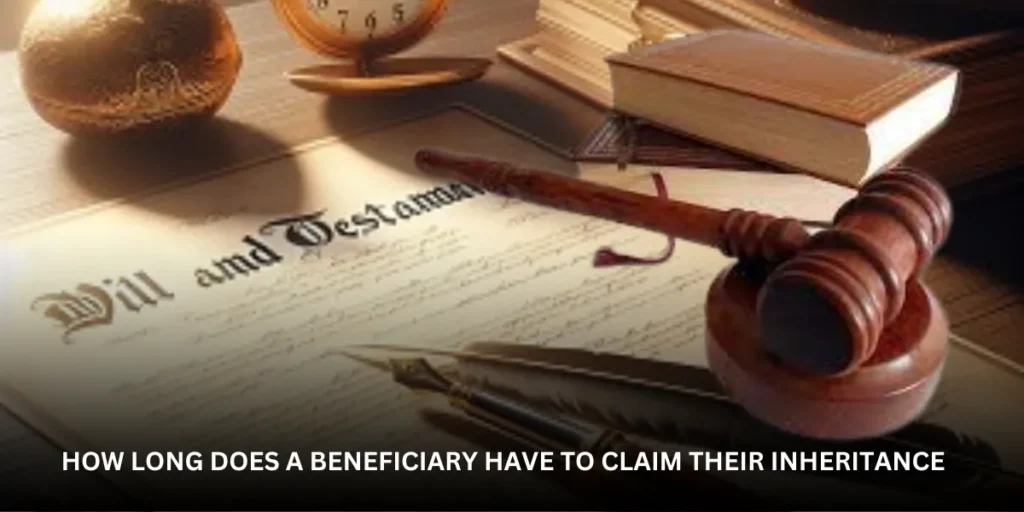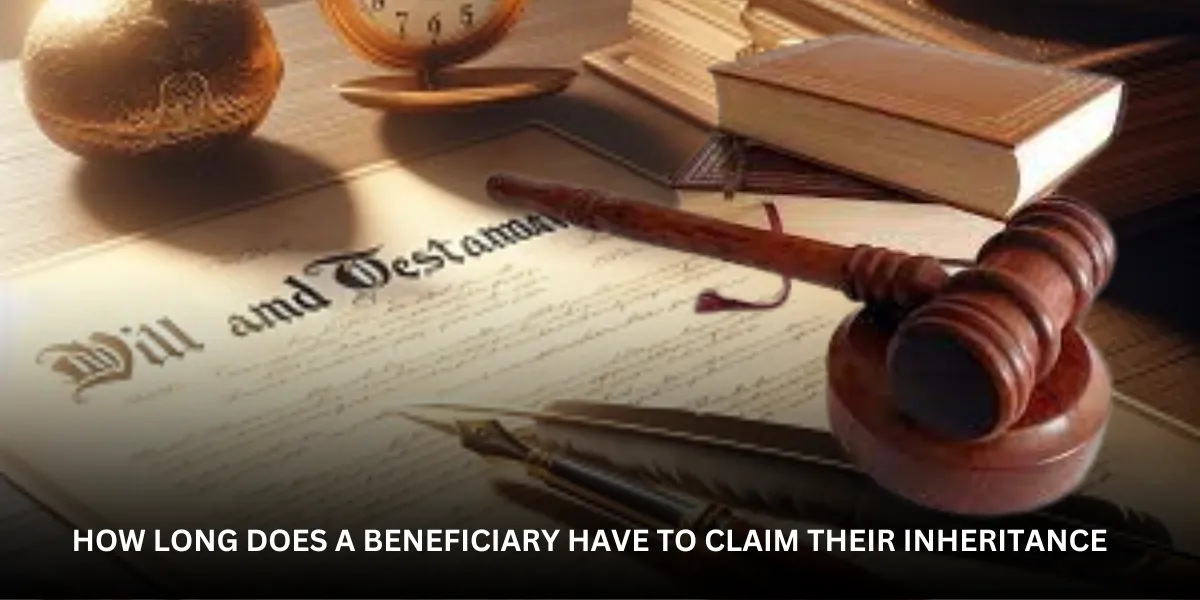How Long Does a Beneficiary Have to Claim Their Inheritance ? A person’s ability to inherit property can be a momentous occasion, but many people might be unaware that beneficiaries have no time limit in which to make claims to their inheritance. The path to obtaining what is truly yours, however, may take different amounts of time. Now let’s explore the nuances of this procedure.
Understanding the Estate Settlement
An estate is made up of a person’s obligations and assets when they pass away. How Long Does a Beneficiary Have to Claim Their Inheritance The estate settlement is the process of allocating these assets and paying off obligations. To estimate how long it might take to collect your inheritance, it is imperative that you comprehend this procedure.

Factors Influencing Timeframe
There are various aspects that can impact the duration required to settle an estate. These include the estate’s complexity, the existence of a will, the requirement for probate, and the possibility of disagreements between creditors or beneficiaries.
Staying in Touch with the Executor
It’s important to communicate with the estate executor if you are a beneficiary. They are in charge of overseeing the estate settlement procedure and are able to give information on its status and any anticipated hold-ups
The Impact of Estate Complexity
The length of time it takes to settle an estate depends in large part on its intricacy. Complex estates with several properties, debts, and tax filings might take years to settle, whereas simple estates with few assets and no probate can be handled very quickly.
Importance of Legal Advice
It is advisable to have legal counsel, particularly in cases where the estate is complicated or where beneficiary disputes may arise. A legal professional can guide you through the legal nuances of the inheritance procedure and advise you on your rights as a beneficiary.
Dealing with Potential Delays
A number of factors, including disagreements amongst beneficiaries, disputed wills, or the requirement to liquidate assets in order to pay off debts, can cause delays in the estate settlement process. It’s critical to anticipate any delays and to exercise patience at all times.
Probate Process Explained / How Long Does a Beneficiary Have to Claim Their Inheritance
The legal procedure of confirming a will and allocating assets in accordance with its provisions is known as probate. Probate may or may not be necessary, depending on the jurisdiction and type of assets involved.
Documenting Your Claim
It’s crucial that you appropriately record your claim to the inheritance as a beneficiary. Providing documentation of your relationship to the deceased as well as any pertinent court records, like a will or trust, may be necessary for this.
Tax Considerations
The amount you receive as an inheritance can be greatly impacted by inheritance tax regulations, which differ depending on the country. It’s critical to think about how your inheritance may affect your taxes and, if needed, to consult a tax expert.
Accessing Professional Support
It can be very difficult to navigate the inheritance procedure, particularly if there are conflicts among beneficiaries or the estate is complicated. To make sure your rights are upheld and to hasten the settlement process, think about obtaining expert assistance from attorneys, accountants, or financial consultants.
Conclusion
Although beneficiaries are not subject to a deadline for claiming their inheritance, there are a number of variables that can affect how quickly settlement occurs. Beneficiaries must keep themselves informed, get legal counsel when needed, and be ready for any delays in the proceedings.
FAQ
1. What is an advance for inheritance?
Heirs can obtain a portion of their inheritance prior to the conclusion of the probate procedure through the use of an inheritance advance, a financial alternative.
2. What is the average cost of an inheritance advance
Depending on the firm and other conditions, the cost of an inheritance advance might vary, usually ranging from 10% to 50% of the advance amount.
3. Are inheritance advances accompanied by extra expenses?
Indeed, there can be extra expenses in the form of fines for early repayment or administrative fees. It’s imperative to find out about these possible costs prior to accepting an advance
4. When ought I to think about obtaining an advance on my inheritance?
If you need money right away and the probate process is going to take some time, you should think about obtaining an inheritance advance
5. Should one seek advice from a financial expert prior to receiving an inheritance advance?
Yes, speaking with a financial expert can give you important information about whether accepting an inheritance advance is the best course of action for your financial circumstances as well as assist you in considering other possibilitie

